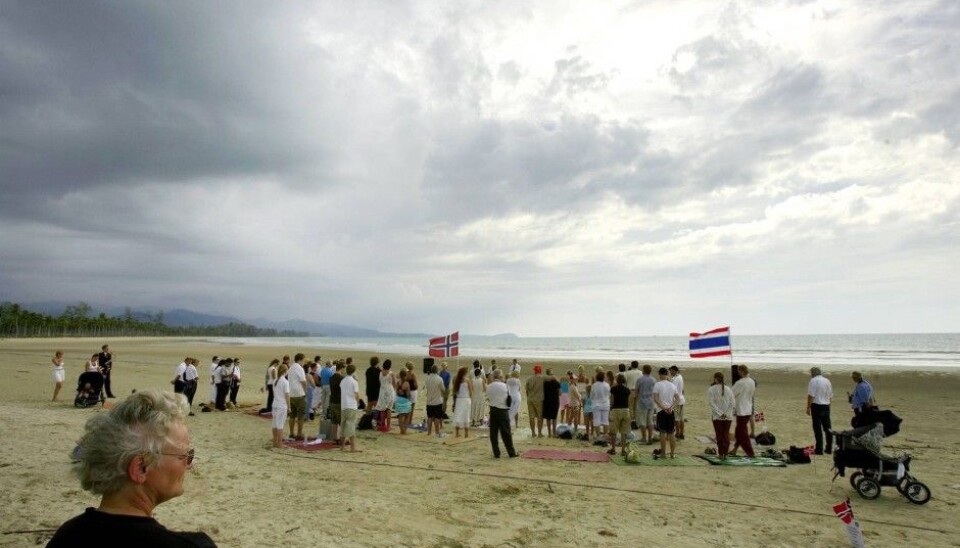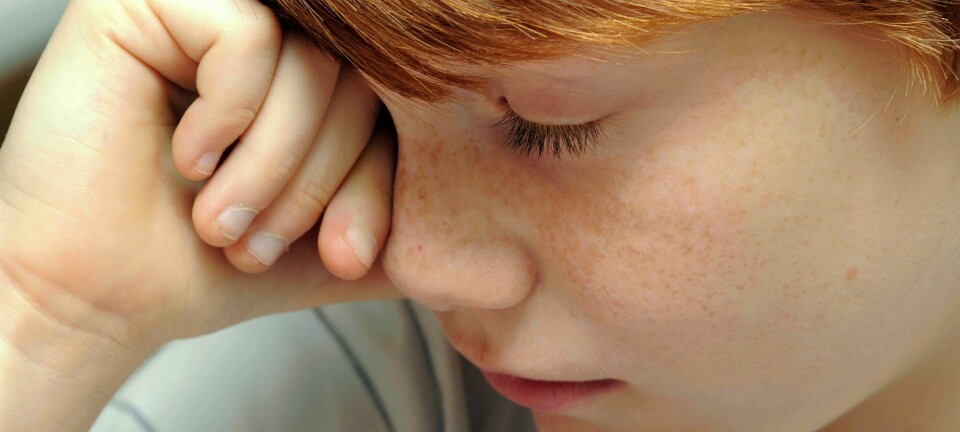An article from Norwegian Centre for Violence and Traumatic Stress Studies (NKVTS)

Many survivors of Indian Ocean Tsunami suffer from chronic grief
Serious depression, anxieties and post-traumatic stress disorder (PTSD) dog family members of tsunami victims.
Denne artikkelen er over ti år gammel og kan inneholde utdatert informasjon.
More than 220,000 people lost their lives in the 26 December 2004 Asian Tsunami that struck many Southeast Asian coastlines. Europeans on vacation were among the victims, including 84 Norwegians, 26 of them children.
The Norwegian Centre for Violence and Traumatic Stress Studies (NKVTS) undertook a multi-year study of the mental health of 111 family members of the victims. The participant group was divided into those who were directly exposed to the tsunami and survived, and those who were not at the site of the catastrophe.
Almost four out of ten surviving family members were still grappling with the emotional aftermath six years after the catastrophic event. “This tells us that the loss of family members in natural catastrophes can have a significant long-term effect on a person’s everyday quality of life and mental health.,” says Pål Kristensen, a psychologist at NKVTS.
Grief persists
Two years after the tsunami, researchers carried out a structured diagnostic interview with each study participant. Four years later, 94 of the same study participants were interviewed again. 36 per cent of them were found to have a psychiatric diagnosis, and half of them had two or more diagnoses. The study results showed that the most common diagnosis was chronic grief.

Grief, anxiety and depression are normal responses when losing a loved one. Prolonged grief is when symptoms of separation anxiety, intense longing for the deceased, difficulty accepting the person’s death or moving on with one’s own life, persist beyond six months.
Typically, 10-15 per cent of all grievers are diagnosed with chronic grief, but this number goes up when the victims are children or the death is sudden and violent.
In the Norwegian study, researchers found that those who had been directly exposed to the tsunami and whose lives had been in serious danger were more prone to diagnoses of anxiety, depression and PTSD.
According to Kristensen, 43 per cent of those directly exposed to the catastrophe had not returned to full-time work six years later, as compared to only 9 per cent of those who were not directly exposed to the tsunami.
Cause for worry

Kristensen finds it worrisome that so many of the bereaved were still struggling six years after this event, given that most people who lose a loved one in a catastrophe do not develop long-term psychological problems.
Several factors may have exacerbated the traumatic nature of the Indian Ocean Tsunami. More than half of all surviving family members waited over a month to receive confirmation of their loved one’s death. “The waiting and living with the uncertainty is especially stressful, and can delay and extend the grieving process,” says Kristensen.
“The combination of fearing for one’s own life, witnessing the catastrophe, and loss of loved ones, can have a dramatic impact on a survivor’s health,” he says.
Longer recovery trajectory
Approximately 20 per cent of the study participants were either on sick leave, in a work rehabilitation program or on disability leave six years after the tsunami.
Kristensen says that the study results point to the importance of early intervention following a traumatic catastrophe, as well as focusing on how best to help grieving survivors over time.
“And last but not least,” he says, “it is important to increase the expertise of the mental health professionals who help the bereaved recover from complicated grief reactions after a profound loss.”
-------------------------------------------------------
Read the Norwegian version of this article at forskning.no



































